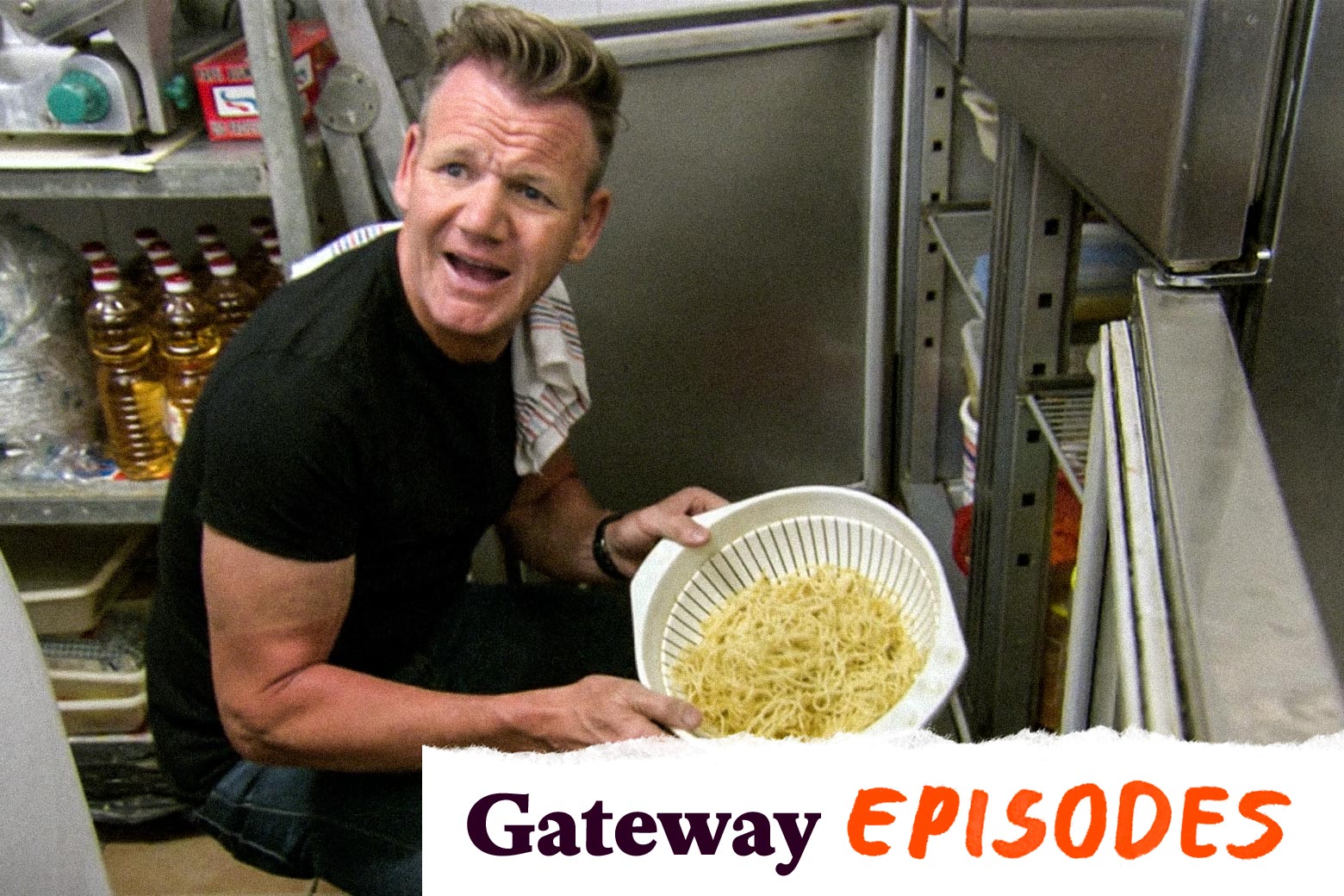Kitchen Nightmares is a reality TV procedural in which Michelin-starred chef Gordon Ramsay plays a kind of restaurant detective-pathologist, investigating failing businesses in order to turn them around. Each episode plays out with almost identical beats: Ramsay is served the terrible food, interviews the highly deluded owners, investigates the kitchen for unhygienic horrors, observes a disastrous dinner service, and uses his expertise to repair the restaurant’s problems, all while doing a lot of yelling. The American version premiered in 2007 and is a product of the Extreme Makeover: Home Edition era of reality television, each episode ending with a surprise restaurant makeover and (usually) thankful owners, tied up with a nice bow. Despite Ramsay’s controversial persona, it’s a comfy show, and one that’s easily accessible thanks to the distribution company FilmRise uploading the entirety of the series to YouTube.
The only factor that changes meaningfully from episode to episode is the nature of gross incompetence displayed by the restaurants’ owners. The show takes a gleeful, sneering approach that works because the owners are often cruel to their own staff, and Gordon Ramsay is one of the world’s great foils for ineptitude. Take the episode “Sebastian’s,” in which Ramsay confronts the owner of a pizza restaurant so obsessed with the potential franchisability of his high-concept menu that he fails to see frozen pizza dough as a liability. At one point Ramsay tells him, totally straight-faced: “I’ve never, ever, ever, ever met someone I believe in as little as you.”
In its early seasons, the show also loves to detour into kitchen horror. The all-time gross-out episode “Dillon’s” sees Ramsay investigating a comically mismanaged Indian restaurant. When Ramsay descends into the infernal depths of the restaurant’s basement, he finds rotting food, rat droppings, and cockroaches running in the plastic lining of the freezer, which wouldn’t be out of place on Hoarders. He immediately shuts down the kitchen. One of the managers would later sue Ramsay for half a million pounds for ruining his reputation.
But the show’s pièce de résistance —and the best episode for curious newcomers to check out—is probably the 2013 episode “Amy’s Baking Company,” which remains one of the most thrilling installments of reality television of the past decade. In it, we meet owners Samy and Amy Bouzaglo, a cat-loving power couple beset by online “bullies” and “haters” who have been leaving angry comments about their restaurant online. Seemingly unaware of the premise of Kitchen Nightmares, they both expect Ramsay to come in, anoint the food, declare them saints, and leave. That doesn’t happen.
Almost immediately we see Samy curse out one customer waiting for food, while Amy retaliates in the kitchen as she makes a pizza: “I made it really spicy for him. I hope it hurts him.” A fistfight almost breaks out between Samy and another customer as Amy threatens to call the police, calling the customer a “little pansy” and “a weenie,” all within the first eight minutes of the show. When Ramsay finally arrives, he is initially impressed by the cleanliness and look of the restaurant, but as the initial layer of Amy and Samy’s glib charm peels away, we see that the owners are lying about the freshness of ingredients, siphoning tips away from staff, and refusing to let them pour wine or input orders in the computer, all culminating in the dramatic firing of a server. The owners, for the first time in the history of the show, refuse Ramsay’s assistance, and he walks out—no help, no makeover, nothing.
“Amy’s Baking Company” is a break from the show’s usual formula that nonetheless captures our current moment: the story of a rational man paddling alone on a vast ocean of incompetence. In an era where seemingly every institution is run by willfully ignorant bullies, there’s an acute pleasure to be found in Ramsay parachuting in, yelling at dingbats, and fixing things—even if it’s only temporary.
